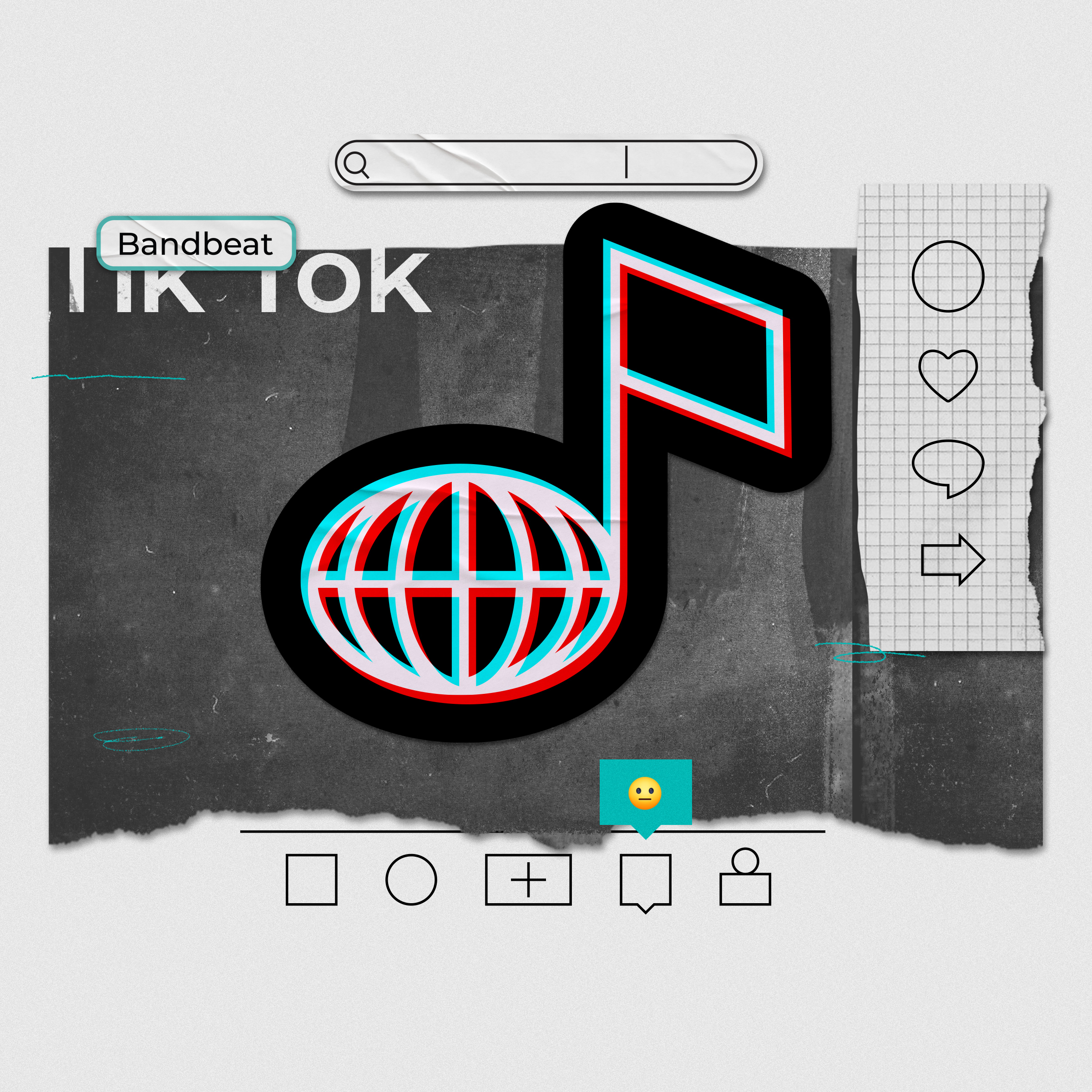28.07.2023
Who's (not) making music for TikTok?
The TikTokification of music between the grip of two industries.

Hating on the music industry is nothing new. Artists complaining about their creative freedom being taken away by heartless, money-hungry Dr. Evils is a standardised bras de fer for so long that’s often looking more like a waltz. Albeit it’s true. Or it’s at least reflective of a real struggle. Since the first DIY release with the Buzzcocks’ Spiral Scratch EP in 1977, and the birth of indie music as a production and distribution method, many musicians have come a long way to ensure not having a corporate suit overviewing their each and every decision. The internet has of course provided plenty new opportunities to escape, milder than handing out cassette tapes, performing only on anarcho-punk festivals in squats, or pulling a KLF, but signing to a major label still has many benefits (duh), one of them being the navigation through the magical and ever changing world of the algorithm.
And then came TikTok.
It’s hard to argue that TikTok hasn’t helped artists win their independence, because it actually has. There are many well documented stories of amateur musicians’ rise to fame through one of their songs going viral, as well as how the platform itself is shaping the music industry as a whole by creating superstars outside the channels we were used to. TikTok dominates the short form video apps, that are already responsible for the 8% of our engagement with music (IFPI Report, 2022), with purchased music of any form only topping it by 2%. A percentage that -even as you read this entry- could already be outshined. So, naturally, everyone wants a piece of it. Word of the day: TikTokification.
Meta made headlines when Instagram introduced the IG Reels, a move that many -including Kim Kardashian- recognised as blatant copying of TikTok, and were reminded of the “inspiration” behind Instagram & Facebook Stories feature, which was Snapchat’s unique selling point up until that time, as well as Meta’s “copy-acquire-kill” approach. But TikTokification is a general trend that is seen almost everywhere in tech, from YouTube (Shorts) to Spotify, that announced its own TikTokification via their newsletter a couple months ago and is already underway.
One could assume that to encompass these feautures and follow the trends is natural for these corporations that -as the cliché dictates- constantly fight for your attention span. And I guess it really makes sense. But how does it apply to music?
The TikTokification of music refers to the tendency that has been noticed recently, of musicians writing songs with the specific purpose of going viral on TikTok. Whether it is through incorporating catchy gimmicks such as countdowns or out of context phrases, or through certain marketing tricks to create the context and then cater to it. These tendencies are only becoming more obvious as time passes, but they are also growing in numbers. As we mentioned before, naturally, everyone wants a piece of it. Not only young, independent artists who want their shot at fame and success, but record companies too. The difference is that an independent musician can choose if he wants to alter their song to create a 10” viral soundbite, while one who has given up creative control, well… can’t. Pop star Halsey spoke recently about the TikTok-related restrictions of record companies, giving as an example her label, Capitol Records, that refused to release a song of hers if it didn’t go viral on TikTok. And she’s not the only one to talk about the industry’s unhealthy dependency on the platform.
This is once again a tale of choosing how to use a knife; to slice bread or injure. And once again we have created ourselves a new exciting thing to work with, but quickly turned it into a suffocating framework that squeezes all creativity and dragoons artists into exhaustingly specific formulas in the exact same way that YouTubers are essentially trapped in their own formula once they achieve virality -or return to oblivion.
As the tech industry tries to emulate TikTok’s success and creates more of the same, homogenising the landscape even further, and the music industry pushes for more of the same lightning in a bottle, the space, time and resources for everything else keep diminishing. But after all, not every song can be a banger and not every post can be engaging.

